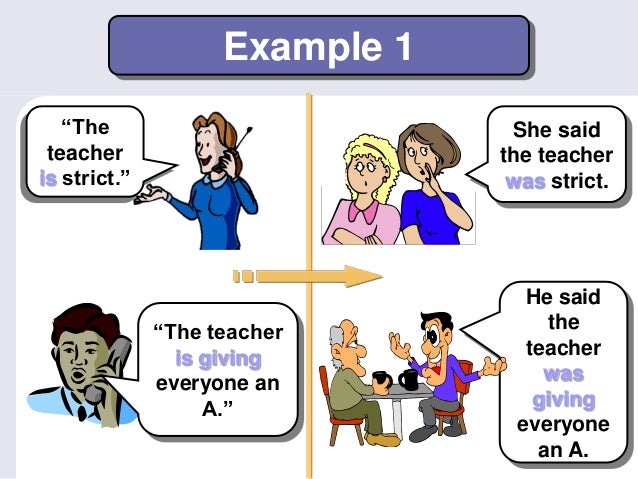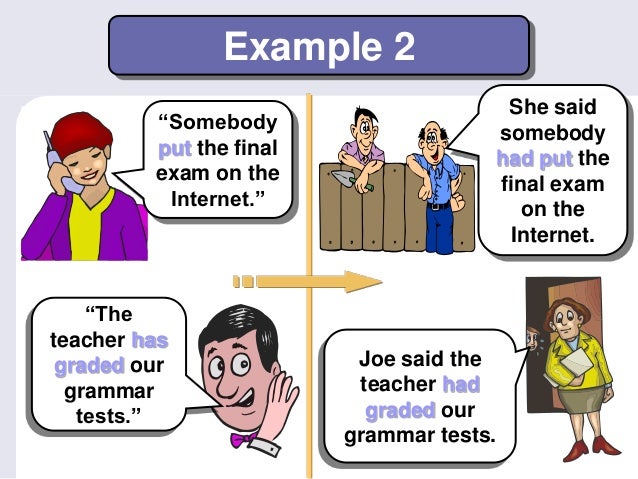Let's start! Have a look to these examples. Compare it to the structure in your mother tongue.
Direct speech vs reported speech: we report what somebody said previously.


Therefore, we will have to take into account the changes in:
1.Verbs
- 1a. Tenses + modals
- 1b. Questions (Wh- questions VS. yes/no)
- 1c. Imperative (affirmative, negative, requests)
3. Deictics: references to time and space
1.VERBS
1a. Tenses & modals (can, will, must, may...).
Shall => should.
We shall go to the cinema => He told us we should go to the cinema.

1b. QUESTIONS
Questions: in reported speech they keep their normal/positive order: S + V + C, introduced by reporting verbs like ASK:
1- Where is Toronto? (Wh- question) - She asked where Toronto was (wh- + S + V)
2- Do you like Canada? (Yes/No question) - He asked if I liked Canada. (if + S + V with the change + C)
1c. IMPERATIVE
2. Pronouns

3. Time and Place

*No change in tenses in the following cases:

Notice that we can use several verbs to report what somebody said. We can classify them according to the structure that follows:

Exercises:
Reporting verbs: https://www.perfect-english-grammar.com/reporting-verbs-exercise-1.html
Exercises (different levels): https://agendaweb.
Flipped classroom - Theory: https://www.